Thomas de Mahy, Marquis de Favras, was sentenced to death in 1790 after being accused of plotting to save the royal family from the deepening horror of the French Revolution. A leaflet circulated Paris claiming that the Marquis de Favras planned to rescue the royal family from the Tuileries Palace.
The leaflet spread the gossip of a plan consisting of murdering the finance minister of France, Jacques Necker; the city’s mayor, Jean Sylvain Bailly; and the National Guard’s commander, the Marquis de Lafayette. Upon reading his death warrant, Favras’ only remark was “I see that you have made three spelling mistakes.”
Born in Favras near Blois in 1745 to a very old and noble family, Marquis de Favras was a passionate royalist who served in the army with distinction. His professional career included being a captain of dragoons in the Seven Years’ War closing campaign and serving the Comte de Provence, Louis XVI’s brother, as a first lieutenant in the Swiss Guards.
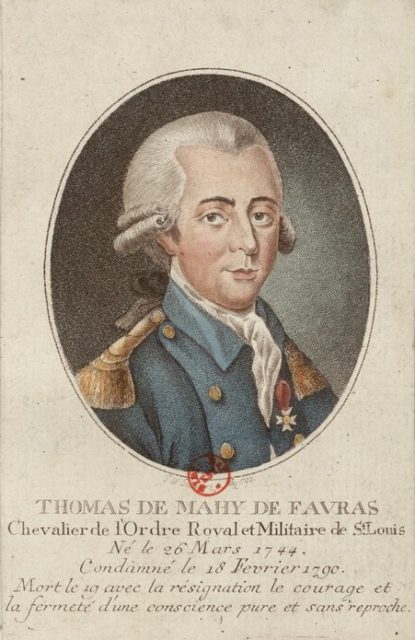
At first, Favras believed that the change from an absolute monarchy to a constitutional one with a parliament would be positive and productive for French society. However, he grew disappointed with the violence generated by the French Revolution and the blaming of the royal family that culminated in collective hatred.
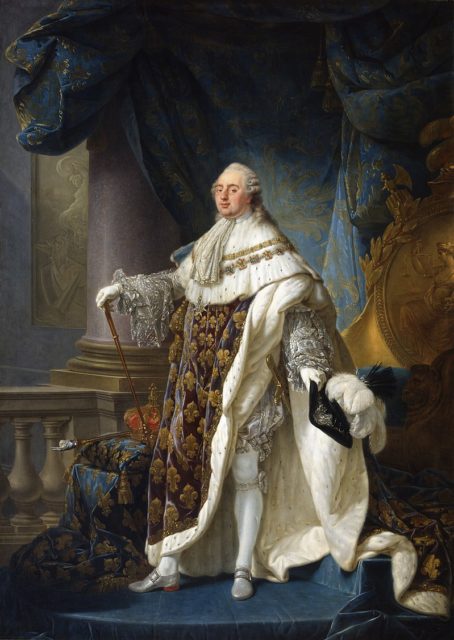
Favras saw the necessity of organizing a counter-revolution. Therefore, he joined the Comte de Provence in his plans to save the royal family. He worked on a plan that was supposed to take Louis XVI, Marie Antoinette, and their children out of the country. Consequently, the Comte de Provence was to be declared the new ruler while simultaneously a force of 30,000 soldiers put an end to the revolution by killing the Finance Minister, the mayor of Paris, and the commander of the National Guard.
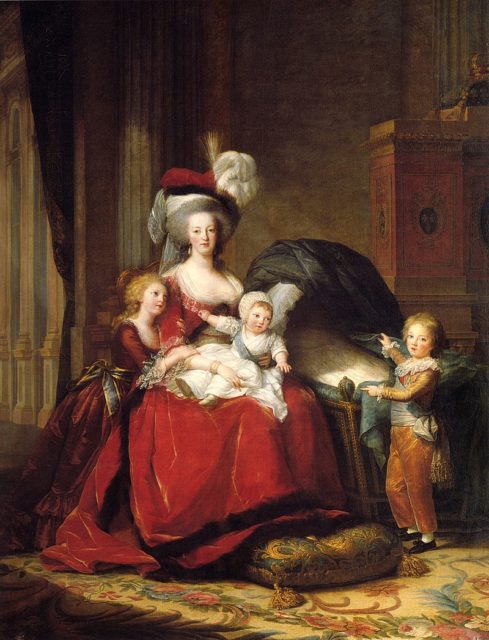
Further, the idea was to starve the citizens until they threw away their heated revolutionary ideas and submitted to royalty once more as a provider of food supplies. To carry out the plot, Favras engaged a group of people who would help in its organization, but he was later betrayed by them. Leaflets revealing the secret plan for counter-revolution and Favras’ involvement in it led to his arrest, along with his wife’s. They were both imprisoned in Abbaye Prison.
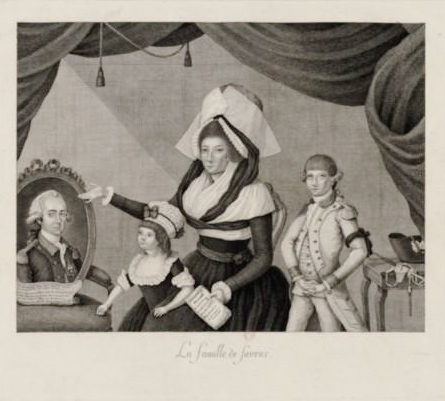
Fearing the consequences of the arrest, the Comte of Provence immediately disavowed Favras, praising both the revolution and the King but mainly the people and their intent, for which he was applauded while the Marquis was hated. When Favras was taken to the Grand Châtelet for a trial, he had to be guarded so that he wouldn’t end up being killed by the people.
Due to insufficient evidence, the trial took two months, during which all the public hatred focused on Favras. While the people were shouting, “To the lamp-post with him!” the commander Lafayette announced that “If Marquis de Favras is not condemned, I will not answer for the National Guard.”
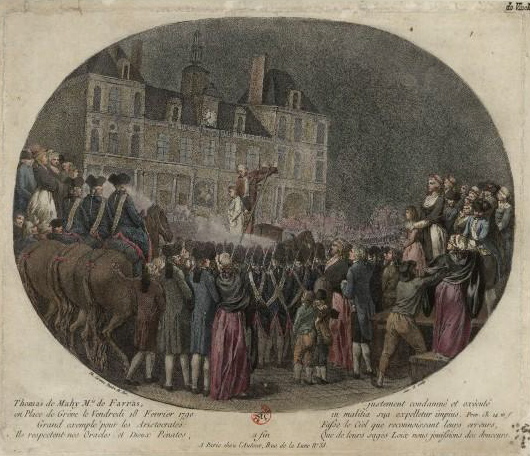
In the end, he was charged with organizing troops that were going to attack Paris even though no evidence of such troops was ever found. Only a letter sent to the condemned from Marquis de Foucault who allegedly was interested in serving those troops was taken as proof.
Read another story from us: The most notorious last words from prisoners on death row
When he was sentenced to death, Favras said to the judges, “I pity you exceedingly if the simple testimony of two men is enough to make you condemn an innocent person. While the people celebrated his death and the National Guard put his head on a pike, because of denying any involvement by the Comte de Provence in the supposed plot, Favras was seen a martyr to the Royalist cause. His wife, Madame de Favras, left Paris and was pensioned by a later French monarch.
